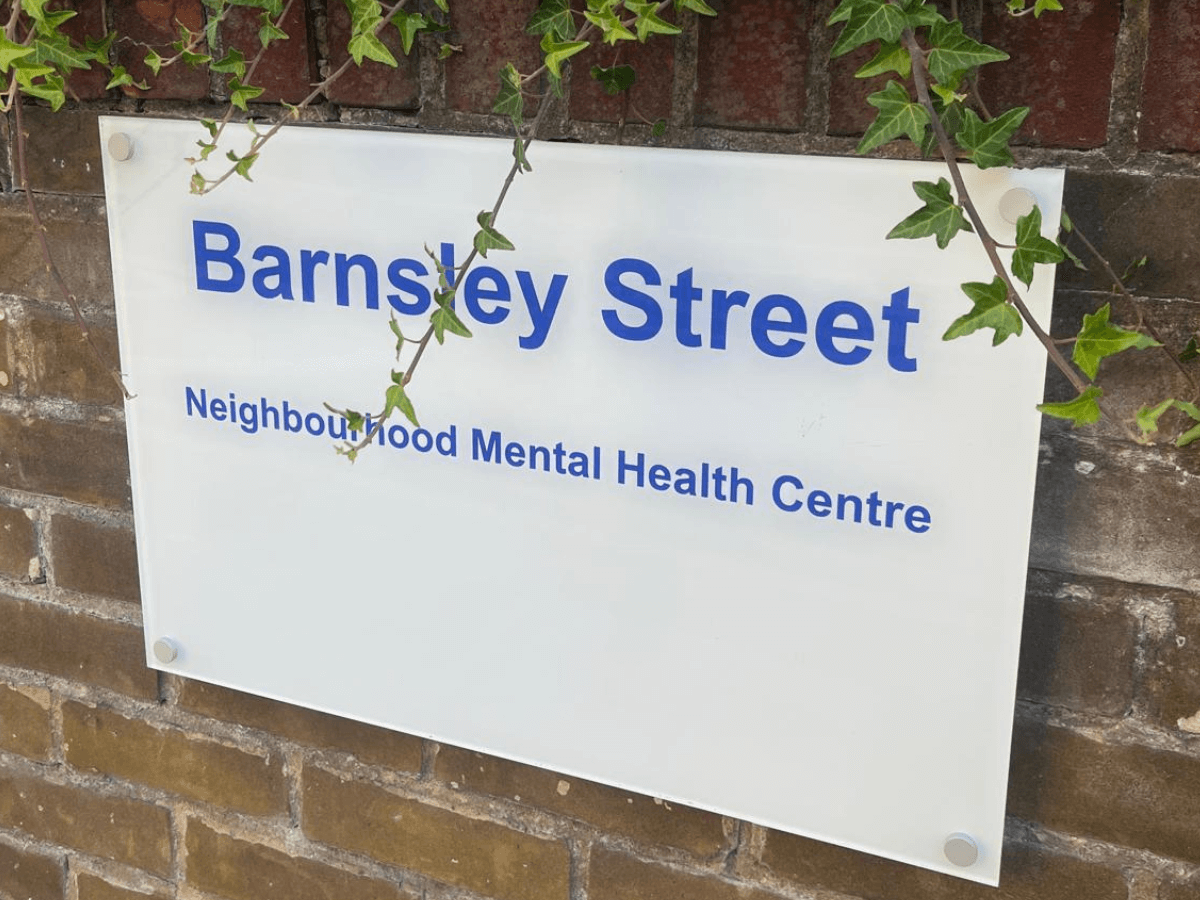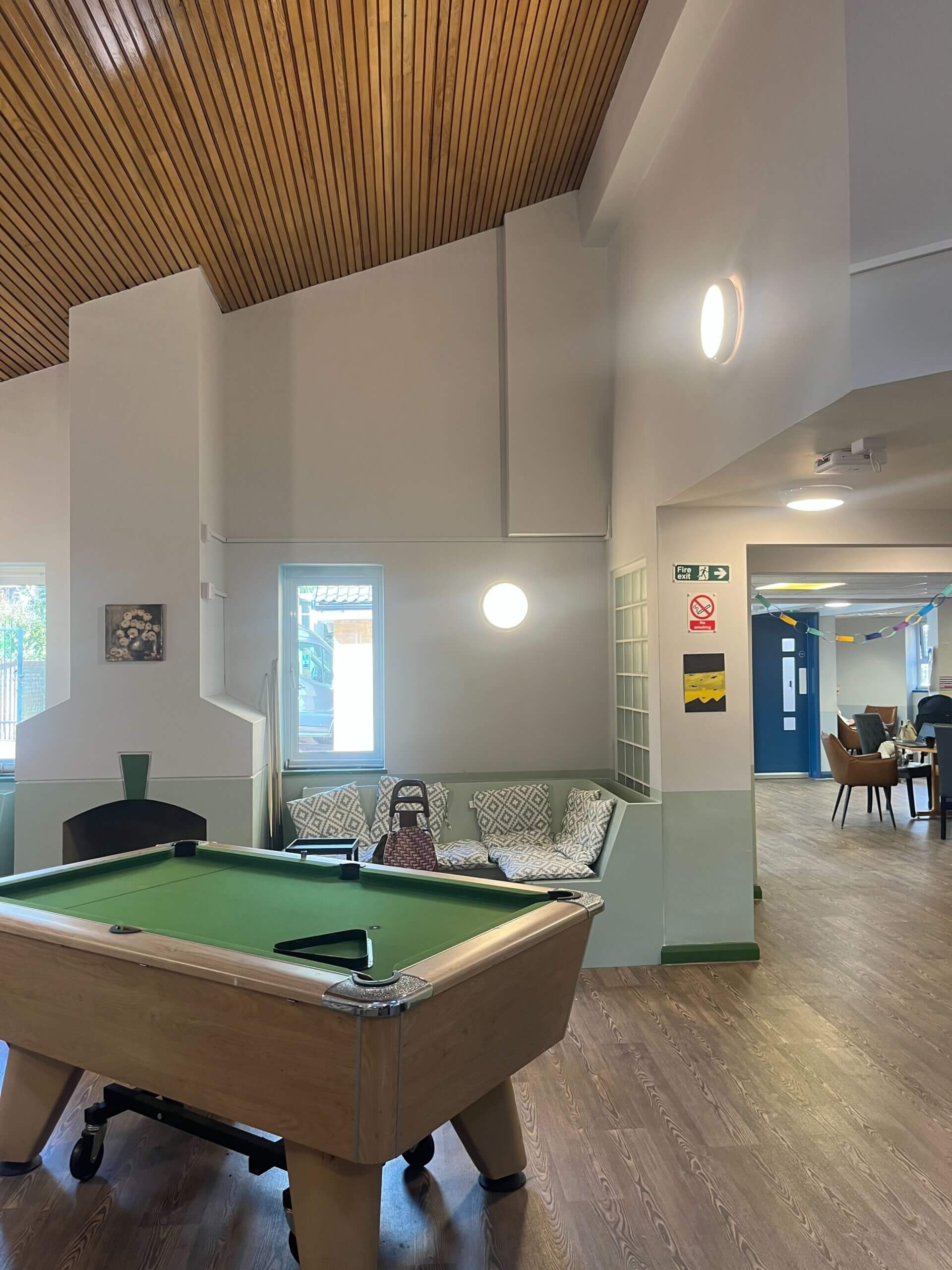

Francesca Smith, Senior Research Officer, Money and Mental Health
Field trip! How Neighbourhood Mental Health Centres can help break the link between financial difficulty and mental health problems
24 September 2025
- Some of the Money and Mental Health team went to visit one of the new Neighbourhood Mental Health Centre pilots this month – services which bring together mental health services, crisis care, wellbeing activities, and financial advice in one welcoming, community-based space.
- Unlike traditional mental health services, the same team supports people throughout their journey, whether through home visits, short stays, or ongoing treatment, helping to reduce stress and build trust.
- Money and mental health are addressed together, with on-site advice on debt, housing, and employment to break the cycle between financial difficulty and poor mental health.
- But longer term funding is urgently needed to ensure the sustainability of the model.
Earlier this month, a few of us at Money and Mental Health went on a field trip to visit one of the most exciting developments in mental healthcare, a Neighbourhood Mental Health Centre.
Just ten minutes away from our office in Tower Hamlets is Barnsley Street Neighbourhood Mental Health Centre. It’s one of six pilot sites opening around the country that brings together a range of mental health services under one roof, including crisis care, community mental health teams and holistic wellbeing support.
Mental health care that feels like home
Perhaps the most radical thing about the centre is also the most simple: an open-door policy, and a warm welcome to go with it. A far cry from the cold, noisy and prison-like environments that can often be found in the mental health estate, anyone from the local community it serves can walk in off the street to get mental health support from staff, take part in activities from cooking to film-making, or even stay the night if they’re feeling unwell.
But don’t be fooled, this isn’t just a community centre for a cuppa and a game of pool. The therapeutic offering sits alongside clinical treatment, from psychiatry to nursing.
What’s different about this place-based model is that the same team works with people all the way through the mental health system. If you need extra support at home, they’ll come to you. If a short stay helps, there are beds available. And if you’re in hospital or the emergency department, they can even come and walk you back to the centre. Not only is this highly efficient, as little time is spent on referring people from one system to another, but this continuity of care also makes for very trusting and safe therapeutic relationships.
For people used to the usual system, it can feel like a real shock, but in the best possible way.
Bringing money and mental healthcare under one roof
Yet what particularly excites us about these new plans is that these centres are also a one-stop shop for financial support on issues such as debt, housing, employment and welfare rights.
Citizens Advice holds regular drop-in sessions, providing advice on debt, housing and welfare rights. The Working Well Trust also offers weekly drop-in sessions, in addition to home visits, to provide specialist support for people with mental health problems to prepare for and find appropriate employment.
This means that people receiving mental health care will also be able to receive support with their finances in the same place, alongside their treatment. That’s something that we’ve long been campaigning for at Money and Mental Health.
The road to recovery
Our research has shown time and again that money worries can drive and exacerbate mental health problems, from the strain of struggling to afford the essentials, to the stress caused by aggressive debt collection. Up to a third of people with a mental disorder are in problem debt, and at least 20,700 people each year in England alone struggle with problem debt while in hospital for their mental health.
“I lost my house because of money problems and my mental illness – I should have had support to prevent that from happening. Also, if you don’t know about what financial support is available, having this combined intervention would really help.” Expert by experience
This can cause a drag on recovery, with people with depression and problem debt 4.2 times more likely to still have depression 18 months later, compared to those without financial difficulty.
Providing support to address financial difficulties alongside mental health care will therefore help more people to get well, and to stay well – breaking the toxic link between money and mental health problems.
Early signs of success – but funding risks ahead
Although the centre has only opened its doors in July, the difference it’s making is already clear. Anecdotally, the centre is seeing far fewer people from the catchment area ending up on mental health inpatient wards, and when they do, their stays are shorter than the national average.
It’s early days, but the impact is clear. That’s why we’ll continue to campaign for this model to be rolled out more widely, beyond the six pilot sites currently in place.
But there’s also a pressing concern. The Neighbourhood Mental Health model funding is only guaranteed until April. Meaningful and measurable change takes more than a matter of months. It takes time to set up the centre, recruit the right staff, embed new ways of working, and build trust with the local community.
The government must commit longer-term funding to the programme, or else the progress we’ve already seen risks being cut short, just as it starts to take root.


